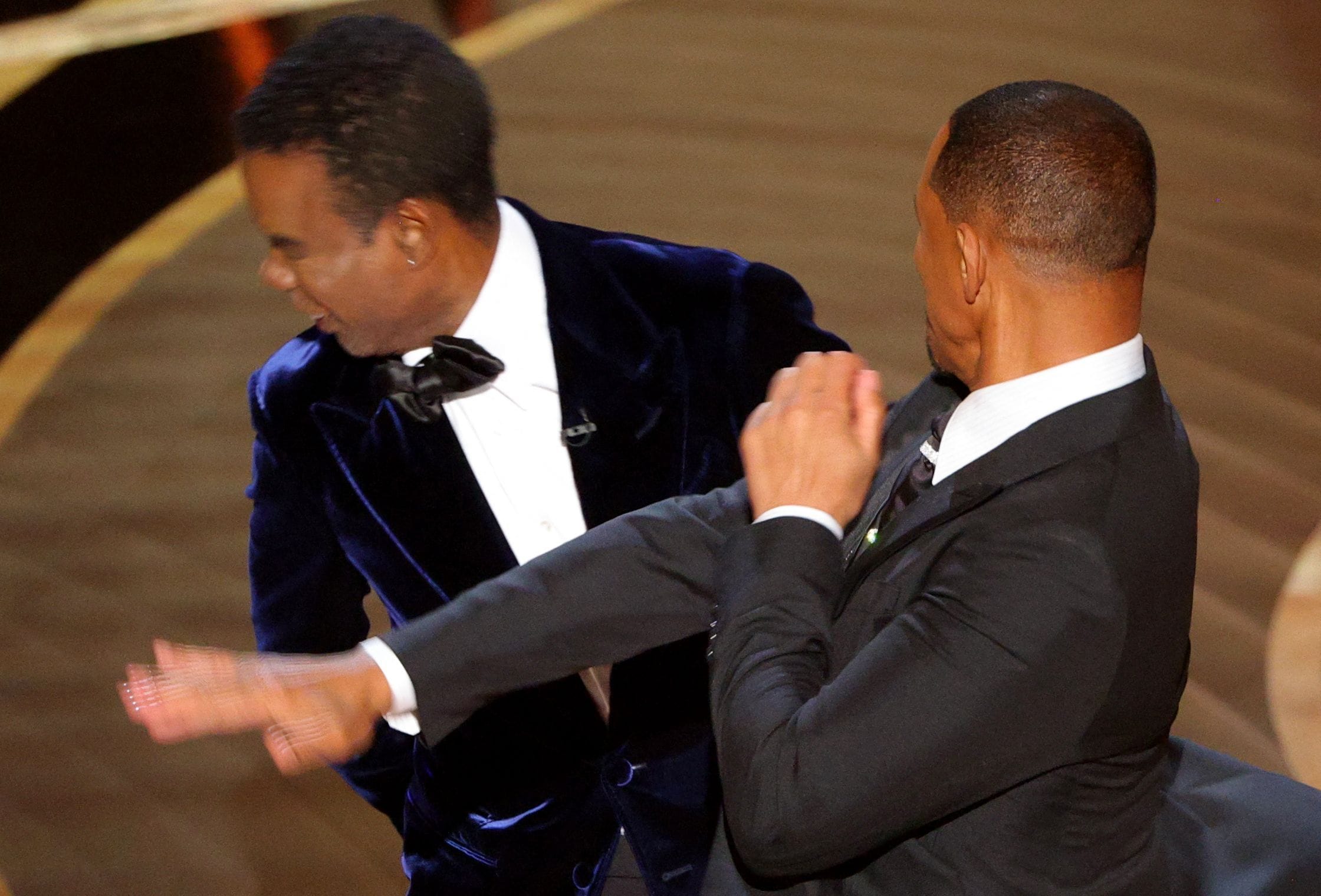The Slap Felt Around the World

The Slap Felt Around the World
When Will Smith slapped Chris Rock at the Oscars, it was a slap that echoed around the world. As many memes as there were commentaries, from very diverse perspectives… and it keeps going on days after. This 1-hit wonder is not a 1-day phenomenon (see what we did there? #punforfun).
But did Rock (i.e. ‘Chris’, not ‘The’) go too far in making fun of Jada? Will certainly thought so. But what does Islam say? Does it even have a sense of humor, or is it all religious doom and gloom?
Firstly, we are told “Mix with the people on the condition that your Deen is not jeopardized, and be jestful with the family.” (Bukhari). Having fun and jests were certainly the tradition of the Prophet (peace be on him) – narrated by Abu Dharr al_Ghifari “…I indeed saw the Messenger of Allah laugh till his front teeth were exposed.” (Muslim)
It should be recognized that “Humor serves as a much needed natural relaxation, and is approved for this purpose by many statements of Prophet Muhammad and the early Muslims.” (ibn al-Jawzi). By another account… “The fact is that within Muslim culture there is a strong tradition of storytelling, joking and laughing. The relationship between Islam and comedy goes to the roots of the religion.” (Yasmeen Khan, 2007)
But there are limits.
The Qur’an tells us, for example:
“O ye who believe! Let not some men among you laugh at others: It may be that the (latter) are better than the (former): Nor let some women laugh at others: It may be that the (latter are better than the (former): Nor defame nor be sarcastic to each other, nor call each other by (offensive) nicknames: Ill-seeming is a name connoting wickedness, (to be used of one) after he has believed: And those who do not desist are (indeed) doing wrong.” (Qur’an 49:11)
We are discouraged about laughing at the trials or tribulations of others. In one hadith, we are told:
“Some young men from the Quraish visited Aisha as she was in Mina and they were laughing. She said: “What makes you laugh?” They said: Such and such person stumbled against the rope of the tent and he was about to break his neck or lose his eyes. She said: ‘Don’t laugh for I heard Allah’s Messenger (may peace be upon him) as saying: If a Muslim runs a thorn or (gets into trouble) severe than this, there is assured for him (a higher) rank and his sins are obliterated.’” (Muslim)
We are discouraged from lying to make persons laugh. In a hadith, we are told:
“Woe to the one who speaks and tells lies in order to make the people laugh; woe to him, woe to him.” (Tirmidhi and Abu Dawood)
And the same for frightening others in jest.
Once when travelling, one of the sahabah fell asleep, the others got some rope and tied him up. The man woke up and was frightened so Prophet Muhammad said: “It is not lawful to any Muslim to frighten another Muslim.” (Abu Dawood)
Making fun of others or having a laugh at their expense is also discouraged. In ahadith, we are told:
“(Backbiting is) your mentioning about your brother something that he dislikes.” (Muslim)
“The Muslim does not slander, curse, speak obscenely or speak rudely.” (Tirmidhi)
Chris Rock would have done well to be guided by Islamic guidance on this, and perhaps saved himself some fresh prints (we’re just too good).
But what of being on the receiving end?
Well, as it turns out, there’s guidance for that too. We are guided in the Qur’an how to respond to provocation and mockery.
“And when you see those who engage in [offensive] discourse concerning Our verses, then turn away from them until they enter into another conversation. And if Satan should cause you to forget, then do not remain after the reminder with the wrongdoing people.” (Qur’an 6:68)
“Hold on to forgiveness, command what is right and turn away from the ignorant.” (Qur’an 7:199)
“And whoever is patient and forgives – indeed that is of the matters [requiring] determination.” (Qur’an 42:43)
“And the servants of the Most Merciful are those who walk upon the earth in humility, and when the ignorant address them [harshly], they say [words of] Peace” (Qur’an 25:63)
Will, by climbing the stairs of the stage, in fact took the low-road, and thereby exposed himself to even more ridicule. Before acting out on impulse, it may have been better had he been reminded of the reference we started with:
“O ye who believe! Let not some men among you laugh at others: It may be that the (latter) are better than the (former): Nor let some women laugh at others: It may be that the (latter are better than the (former): Nor defame nor be sarcastic to each other, nor call each other by (offensive) nicknames: Ill-seeming is a name connoting wickedness, (to be used of one) after he has believed: And those who do not desist are (indeed) doing wrong.” (Qur’an 49:11)
In these incidents are useful reminders, and we are thankful that we can read about it and reflect, and not be relegated to have this sense slapped into us.